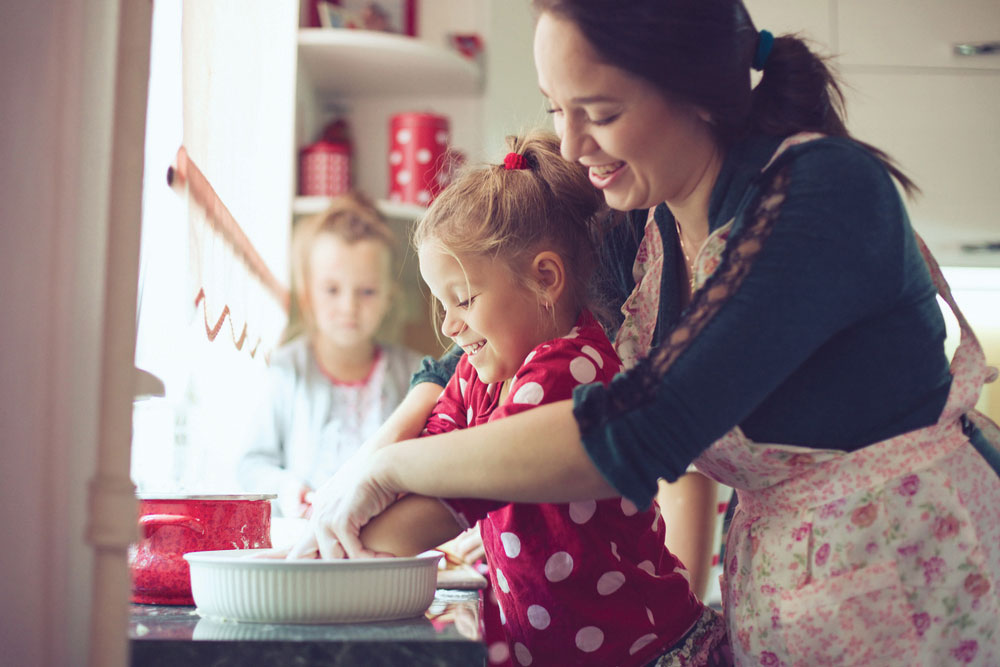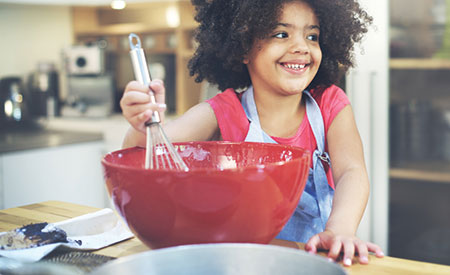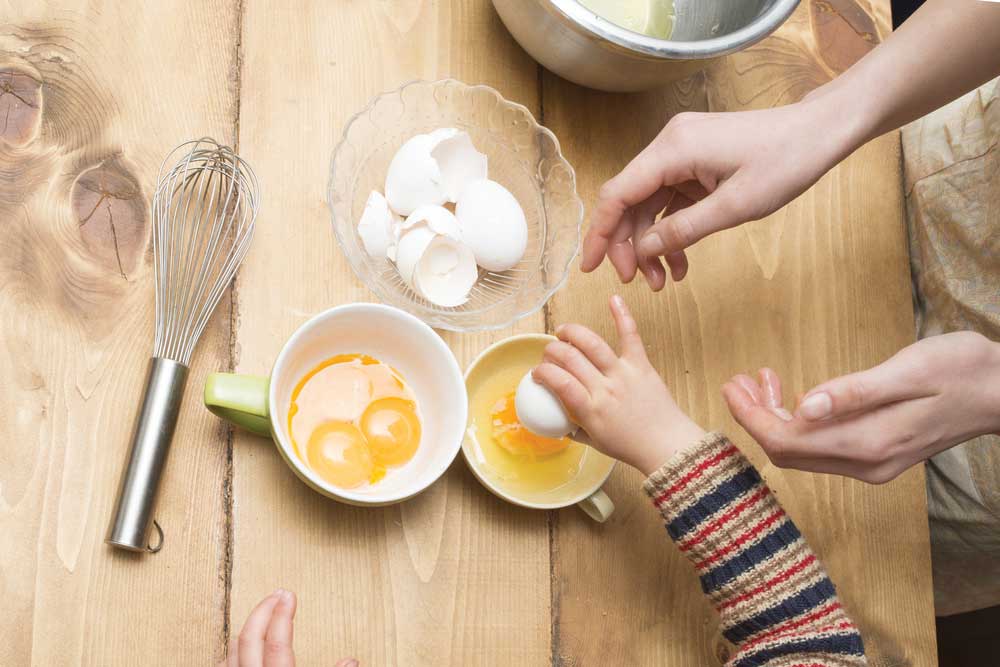Cooking with children is an activity that can be easily classified as a family affair; it is fun, it is important, and it is rewarding to boot. Even ‘teaching’ how to put a dish together can be laced as a game. For, children soak in information when it is presented as a fun activity than as a classroom exercise.
Without even realising it, cooking could boost their math skills by presenting fractions through the ingredients used; enhance their basic knowledge of reading and understanding through the steps involved in putting a dish together; and imbibe the importance of following one step before going to the next. What is of significance here is the knowledge that cooking can bolster self-esteem, as the feedback is instantaneous (learning any new skill is known to develop healthy self-esteem). Besides, cooking, when it is done in a relaxed mien, can open the lines of communication with children – to indulge in small or serious talks.
Teaching Cooking
While there is no one way to simplify the task of teaching cooking to children, there are certain techniques that could prove effective in helping them learn the skills involved. The most important step is to introduce the kitchen to your children as a domain that is the most active in the home. Let them see, hold and experience the cooking utensils used in everyday cooking, alongside the common ingredients. Basic knowledge of pots and pans, spices and oils, as well as common ingredients like onions and potatoes will help get them excited to learn more. It is important also to inform them the dangers of using tools wrongly. While knives and forks can come in later, letting them know their use in cooking will be a foundation. Practising safety in the kitchen could be a big life skill; inculcating hygiene is another.
Depending on the age of your children, you could incorporate different lessons, with the larger objective of injecting fun into cooking and a love for the kitchen.
You could start when your child is as young as three years; however, the degree of cooking involved should be introduced gradually to ensure it is fun and not hazardous.
While some overzealous parents share videos of their little children whipping up main dishes on social media, it is best to hold on to the complex tasks until the child is able to understand the complete process. Involving three-year-olds as ‘helpers’ will make it a fun experience for all. Begin by keeping all sharp, heavy and hot things away from them. Some of the simpler tasks for three-year-olds are washing vegetables while learning about their names and their benefits; mashing potatoes with a masher; mixing ingredients in a bowl for baking…
Your five-year-olds, on the other hand, will be better equipped to follow simple instructions, provided they are supervised all through. They can weigh and measure ingredients, and even bread and flour the nuggets or cutlets. Sieving, kneading and even rolling and cutting the dough with plastic cutters are fun activities that they would willingly accept.
You could introduce knife and scissors if your children are seven years or more, provided you are around to give a hand and keep a check on their use. You could also opt for knives that are suitable for younger children. Your seven-year-olds could easily measure and add in ingredients, beat eggs and fold them into the dough and, basically, learn how to immerse the egg into the water to boil and also peel the shells. At this age, they could easily help you set the table for dinner.
If the children are eight years and more, involve them in planning the meal. Let them suggest and recommend dishes and recipes to follow; get them to source the ingredients from the pantry or the fridge. A year or two later, they could peel vegetables and put a salad together.
12-year olds, who are not novices in the kitchen, can be involved in more complex recipes. If they show a penchant for cooking by themselves, go ahead, give them the leeway. Cooking a dish to perfection will prove to be a great confidence booster. It will enhance self-esteem and give them an edge over others. However, at every stage of life, it is important to ensure they are aware of the dangers involved.
After all, is said and done, one cannot help but reflect on the fact that cooking, like reading or learning to drive a car, is a life skill that one will come to rely on all through one’s life.



